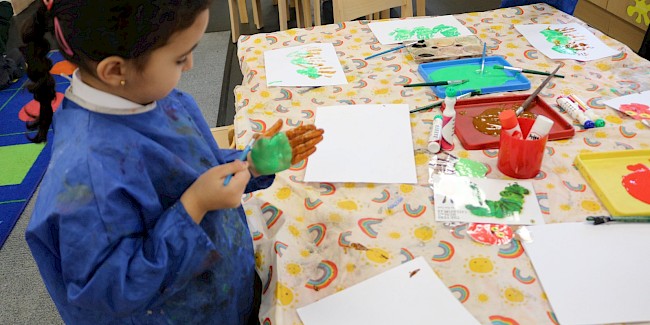Nursery
Starting nursery is a new and exciting experience. However, both parents and children can sometimes feel apprehensive about the changes ahead.
At Cedar Children’s Academy, we aim to make this transition as smooth and as positive as possible. Below are some of the things we do to support your child’s move into nursery and some suggestions of what you might like to do as parents.
Morning Session – 8.40 – 11.40am (the gate opens for you to collect your child from 11.30am)
Afternoon Session – 12.25 – 3.25pm (gate opens for you to collect your child from 3.10pm)
We are able to provide a limited amount of 30 hours places.


